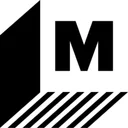Hispanic American-Owned Banks and Credit Unions by State

Many, or all, of the products featured on this page are from our advertising partners who compensate us when you take certain actions on our website or click to take an action on their website. However, this does not influence our evaluations. Our opinions are our own. Here is a list of our partners and here's how we make money.
Key takeaways about Hispanic American-owned banks and credit unions
9.3% of Hispanic or Latino households are unbanked.
There are dozens of federally insured Latino-led banks and credit unions that aim to help people who have traditionally been underserved by the U.S. banking system.
Minority Depository Institutions are either minority-owned, minority-led or have people of color as a majority of its members or board members, and they serve a community that’s predominantly minority individuals.
Latino-led banks and credit unions aim to help people who have traditionally been underserved by the U.S. banking system. This includes Hispanic or Latino households who, at 9.3%, are unbanked at more than double the national rate, according to the Federal Deposit Insurance Corp.’s 2021 survey of unbanked households. By comparison, 11.3% of Black households, 6.9% of Native American households and 2.9% of Asian households in the country are unbanked.
And according to the FDIC survey, 24.1% of Latino households are underbanked, meaning they have bank accounts but also use alternative financial providers such as check cashers, payday lenders or remittance transfer providers. But using a bank account means access to a safe place for keeping cash and a way to pay bills (regardless of your citizenship or immigration status).
» Skip ahead to the list of Hispanic American-owned banks and credit unions
Why Hispanic American banks and credit unions matter
The Hispanic American banks and credit unions listed below are committed to helping their communities. Aside from the neobank included (which is Hispanic American-led and partnered with a federally insured bank), the list is made up of banks and credit unions categorized as Minority Depository Institutions by the FDIC and the National Credit Union Administration, respectively, which means they are either minority-owned, minority-led or have people of color as a majority of its members or board members, and they serve a community that’s predominantly minority individuals,. Some of the institutions are also community development financial institutions, or CDFIs, meaning that they focus on serving low-income communities and the people who have historically been excluded from the financial system. (Learn more about CDFIs.)
» Interested in other minority-owned financial institutions? See our list of Native American-owned banks and Black-owned banks
The banks and credit unions included in our list are members of the FDIC or NCUA, and in the case of the one neobank included, it’s partnered with an FDIC-insured bank. That means that deposit accounts have protection within the FDIC insurance limits or NCUA insurance limits — generally, up to $250,000 per depositor, per account category.
List of Hispanic American-led and Hispanic American-owned banks and credit unions by state
Not all of the banks and credit unions on this list are accessible online; financial institutions with websites are linked.
Other ways to find Hispanic American-owned credit unions
About 130 credit unions belong to a nationwide program called Juntos Avanzamos (Together We Advance), which requires participating credit unions to provide affordable and accessible banking products to Latinos. The practices vary by credit union, but these are common:
Allowing applicants to provide foreign identification, such as a foreign passport and a "matrícula consular" — ID cards issued by Mexican and other governments for citizens who reside outside their home countries.
Providing affordable banking services, such as money orders, check cashing, credit-building loans, second-chance checking or other products.
Accepting loan applicants based on alternative credit histories, such as records of rent or utility payments and letting identification be in the form of Individual Taxpayer Identification Numbers, given to foreign nationals who work in the U.S. and don’t have Social Security numbers.
Having English and Spanish materials as well as bilingual staff.
Having Latinos on a credit union’s board of directors and executive team.
Offering financial education through classes and financial coaching (for building credit, saving, buying a home, starting a business or other topics).
Outside of financial institutions that are part of Juntos Avanzamos and aren’t Hispanic American-owned, there are banking apps, banks and credit unions that cater to Latinos and Spanish-speaking customers:








